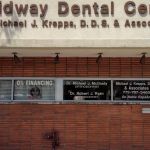How to Avoid Plaque Buildup if You Have Braces – Essential Tips for Healthy Teeth
- The Importance of Oral Hygiene with Braces
- Understanding Plaque Buildup with Braces
- Brushing Techniques for Braces
- Flossing with Braces
- The Use of Mouthwash
- The Importance of Regular Dental Visits
- Recommendations for Oral Care Products
- Conclusion and Buying Guide
1. The Importance of Oral Hygiene with Braces
Maintaining oral hygiene is crucial when you have braces. The brackets and wires create tight spaces where food particles and plaque can easily accumulate, leading to plaque buildup and potential tooth decay. The good news is that with the right care and attention, you can keep your teeth healthy and your braces in top condition.
Without proper cleaning, plaque buildup around the braces can lead to unsightly stains, bad breath, and even gum disease. For these reasons, it’s essential to develop a consistent and effective oral hygiene routine to avoid plaque buildup while wearing braces.
2. Understanding Plaque Buildup with Braces
Plaque is a sticky, colorless film of bacteria that forms on your teeth. When you have braces, plaque can easily collect around the brackets, wires, and in between your teeth, which increases the risk of cavities and gum disease.
Food particles, along with saliva, contribute to the formation of plaque. The bacteria in plaque feed on sugars from the food you eat, producing acid that can erode tooth enamel and lead to cavities. Braces make it more challenging to clean all the surfaces of your teeth effectively, but it is not impossible with the right techniques.
3. Brushing Techniques for Braces
Brushing your teeth with braces requires a bit more effort than regular brushing. You must make sure to clean all areas around the brackets, wires, and gums. Here’s how you can do it effectively:
- Use a soft-bristled toothbrush to avoid damaging the wires or your gums.
- Brush at a 45-degree angle to your gums to ensure you clean the brackets and the area where the bracket meets the tooth.
- Brush all surfaces of your teeth, including the front, back, and chewing surfaces.
- Take your time and brush for at least two minutes to ensure thorough cleaning.
- Use a circular motion and avoid scrubbing hard to prevent gum irritation.
Special orthodontic toothbrushes, which are designed for braces, can make brushing more efficient. They have bristles arranged to clean around the wires and brackets.
4. Flossing with Braces
Flossing with braces can be tricky, but it’s essential for removing food particles and plaque between your teeth. Regular flossing helps prevent plaque buildup in areas that are harder to reach with a toothbrush.
Here’s how to floss effectively with braces:
- Use orthodontic floss threaders, which allow you to easily pass floss behind the wires.
- Alternatively, use floss picks designed for braces, which come with a hook to help you maneuver the floss around the brackets.
- Gently slide the floss between your teeth and under the archwire, ensuring you clean both sides of each tooth.
Flossing once a day is essential for keeping plaque under control, even with braces.
5. The Use of Mouthwash
Mouthwash can be an excellent addition to your oral hygiene routine, especially when you have braces. It helps rinse away food particles, reduce plaque, and freshen your breath. Look for an antimicrobial or fluoride mouthwash to provide added protection against cavities and gum disease.
Using mouthwash after brushing and flossing can help to ensure your mouth is fully clean, particularly in areas where your toothbrush or floss might not reach as easily. It’s an easy step that can significantly improve your oral care routine.
6. The Importance of Regular Dental Visits
Regular visits to your dentist or orthodontist are crucial when you have braces. They can help identify early signs of plaque buildup, cavities, or other issues that you may have missed. A professional cleaning every six months is recommended to remove plaque and tartar that may have accumulated despite your best efforts.
In addition, your orthodontist can check the condition of your braces and make adjustments as needed to ensure they continue to work effectively and comfortably.
7. Recommendations for Oral Care Products
Using the right oral care products can make a significant difference in preventing plaque buildup. Here are some recommended products for people with braces:
- Orthodontic toothbrush with soft bristles.
- Floss threaders or orthodontic floss picks.
- Fluoride or antimicrobial mouthwash.
- Interdental brushes for cleaning between brackets and teeth.
These tools will make it easier to clean all surfaces of your teeth and braces, ensuring better oral health and minimizing plaque buildup.
8. Conclusion and Buying Guide
By following these simple yet effective tips for avoiding plaque buildup while wearing braces, you can keep your teeth healthy, your braces in top condition, and your smile shining. Remember that good oral hygiene, regular dental visits, and the right products are key to avoiding plaque and maintaining a beautiful smile.
If you’re looking for high-quality oral care products, visit Dentistry Toothtruth for a range of dental tools specifically designed for people with braces. Click here to explore more and find the best products for your dental health!







 Dental Group NY4.0 (266 review)
Dental Group NY4.0 (266 review) Western Iowa Endodontics3.0 (16 review)
Western Iowa Endodontics3.0 (16 review) Central Ohio Dental Associates4.0 (125 review)
Central Ohio Dental Associates4.0 (125 review) Dr. Ira G. Spiro, DDS5.0 (38 review)
Dr. Ira G. Spiro, DDS5.0 (38 review) Midway Dental Center4.0 (16 review)
Midway Dental Center4.0 (16 review) Dr. David Miller DDS5.0 (1 review)
Dr. David Miller DDS5.0 (1 review) The Importance of Oral Health Education During Pregnancy for a Healthy Pregnancy
The Importance of Oral Health Education During Pregnancy for a Healthy Pregnancy Best Tips for Brushing Your Teeth Properly for Healthy Gums: Essential Techniques for Oral Health
Best Tips for Brushing Your Teeth Properly for Healthy Gums: Essential Techniques for Oral Health Why Skipping Dental Checkups Can Lead to Bigger Oral Health Problems
Why Skipping Dental Checkups Can Lead to Bigger Oral Health Problems Advantages of Porcelain Dental Restorations
Advantages of Porcelain Dental Restorations How Can Diabetes Cause Tooth and Gum Problems? Preventing and Managing Oral Health Issues
How Can Diabetes Cause Tooth and Gum Problems? Preventing and Managing Oral Health Issues Healthy Habits for Promoting Good Oral Health and Hygiene: Tips for a Healthy Smile
Healthy Habits for Promoting Good Oral Health and Hygiene: Tips for a Healthy Smile